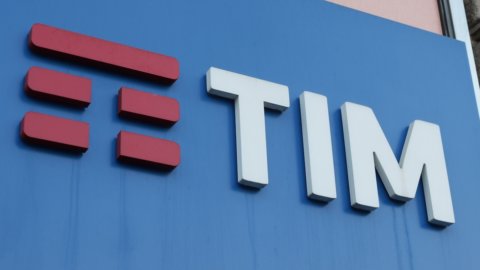Beijing's response to Trump's latest leap on tariffs was not long in coming. Since this morning, for the first time in 11 years, the rate of the yuan has fallen below the psychological barrier of seven yuan to a dollar, a threshold broken with the full support of the government which, in the past, has always intervened to calm the markets. This time the central bank confined itself to a note in which it reiterated "the ability to support the exchange rate at adequate levels despite the challenges of protectionism". Meanwhile, Beijing has suspended all purchases of soybeans from the United States. In short, the game is getting tougher, also favored by the fragility of the markets in August and by geopolitical tensions: today Hong Kong is paralyzed by the general strike.
TOKYO DOWN, HONG KONG COLLAPSES
The financial week thus opens under the banner of strong tensions destined to weigh on European openness and on Wall Street.
The Tokyo Stock Exchange is down sharply, down 2,3%, to its lowest since the beginning of June. The situation is so complicated that a summit has been convened between monetary authorities and the government. A new intervention on interest rates, already in negative territory, is not excluded.
Hong Kong, at half service on the occasion of the strike, dropped 2,8%, to a seven-month low. China's CSI 300 index loses 1,1%. The Korean Kospi was worse, -2,1%, down to the levels of the end of 2016.
FLY THE YEN, TOKYO RAISES THE BARRICADES
The decline of the yuan is not isolated. The run on safe-haven assets pushes the Japanese yen to 106,1 from 106,7 last Friday. The dollar exchange won, the currency of South Korea, moved to 1.213, +1,2% compared to the closing. The dollar gained 0,5% against both the ringgit, the Malaysian currency, and the Indonesian rupiah.
Gold is at a six-year high at $1.452, up 0,5%.
Weak oil: -1,5% to 61,1 dollars a barrel.
HOLD THE EURO. NEGATIVE INTERESTS FOR BUNDS BY 2050
Futures signal a deep red start for European stock exchanges and for the S&P index (-1,1%). In the general confusion, the euro is characterized by its stability: the exchange rate against the dollar moves to 1,128, +0,2.
But the trend confirms the race for the Bunds, one of the most coveted safe havens in times of tension. All German government bonds ended up in negative territory for the first time on Friday, including the 0,0069-year Bund, which fell below zero to -0,002%, before settling at -0,50%. The 0,40-year Bund also hit a new all-time low at -XNUMX%, slipping below the ECB deposit rate, which is at -XNUMX%.
PMI INDEXES TODAY, NEW PRESSURE ON THE pound
Operators are convinced that, faced with the slowdown in the economy caused by tariff tensions, a flurry of rate cuts is looming, necessary but perhaps not sufficient to counteract the slowdown in economies. Strong signals will arrive today on the state of the economy. In the morning the PMI data on the performance of the main economies of the Eurozone will be released, during the day there will also be data on US manufacturing.
The vast majority of traders expect a new Fed intervention soon. James Bullard will speak this week. Fed president of Saint Louis, and John Williams of Chicago, a well-known "dove".
Brexit tension is also growing. The euro also appreciated against the pound, at 0,916. A six-monthly poll conducted by Bloomberg among analysts and investment banks on Brexit leads to this conclusion: about a third of traders interviewed expect a no-deal divorce from the European Union, this should lead the pound to weaken by another 8-9 % compared to current levels.
TODAY THE ECB BULLETIN AND THE ISTAT NOTE
To have a more precise indication of the ECB's next expansionary moves to follow, the Economic Bulletin of the European Central Bank and data on German industrial production are released today. The monthly Istat note on the trend of the Italian economy will be released in Italy. In the meantime, a new meeting of the government with the social partners is scheduled at Palazzo Chigi in view of the preparation of the next budget law.
The downward trend in the cost of money also involves other central banks: a 25-point cut in the cost of money is expected by the Central Banks of India and New Zealand.
THE CAR'S GAME REOPENS. FCA HAS THE JOLLY JEEP
The European stock exchanges restart after a difficult week, in which Piazza Affari lost 3,5%. Among the sectors, the automotive sector fell sharply (-7%), which however will be at the center of the market's attention on Monday after the signals launched by the major financial newspapers on the resumption of negotiations between Fiat-Crhrysler, Renault and Nissan after the stop of June.
"Our door is open," CEO Mike Manley told the Financial Times on Sunday after the Wall Street Journal revealed on Friday that something was moving on the front of the relationship between Renault and Nissan, the main obstacle to expanding the alliance to Fiat Chrysler. If Paris agrees to reduce the percentage in Nissan, which is struggling with a serious drop in sales, reads an email exchanged between the top management of the Japanese company, the agreement could restart. Nissan's earnings slump was the key element that gave new impetus to the abruptly halted deal in June: net profits in the first quarter fell to 6,4 billion yen (54 million euros), due to the sharp decline of sales, especially in the USA and Europe. It remains to be seen whether Paris will agree to drop the current 43% held in Nissan to 22-23% as requested by the Japanese, the precondition for negotiating with any FCA-Renault couple.
In the meantime, Fiat Chrysler declares its readiness to reopen the game: “The industrial logic of the operation – Manley declared this morning – is still very much alive. If circumstances change, we would be interested in hearing your proposals". But the CEO adds that FCA has the strength to go it alone thanks to the push of Jeep. Today the Wall Street Journal publishes an analysis of the brand's strong growth potential, especially in Europe and China.
STOCK EXCHANGE TEST FOR SALINI, FINECO ACCOUNTS COMING SOON
Also under scrutiny Italy project, the national construction pole that will arise from the agreement between Salini Impregilo, Cdp and the banks (Intesa, Unicredit and Banco Bpm) which provides for a capital increase of 600 million and the forthcoming bailout of Astaldi. The operation will give life to a conglomerate which, at the end of the contributions, will have a turnover of 14 billion, a portfolio of 62 billion and an operating profit of 700 million.
The dissemination of half-yearly accounts of listed companies continues: among others, data from Cairo, Finecobank and Pininfarina are published.
BUFFETT'S CHEST AT 122 BILLION DOLLARS
On Wall Street, the accounts campaign is drawing to a close: the accounts of "only" 62 companies are expected this week, including Walt Disney, TripAdvisor, and Capri Holding, the company that controls Michael Kors and Versace.
Meanwhile, Warren Buffett's fortune continues to grow: the financial Berkshire Hathaway controls 122 billion in liquidity.





